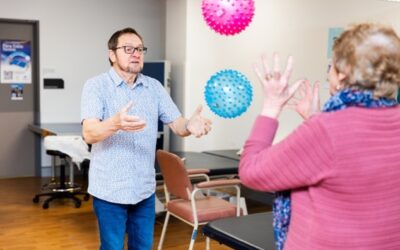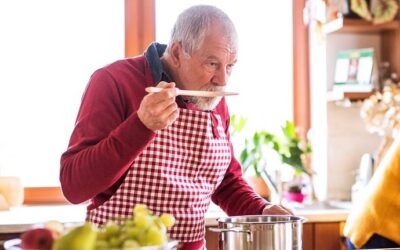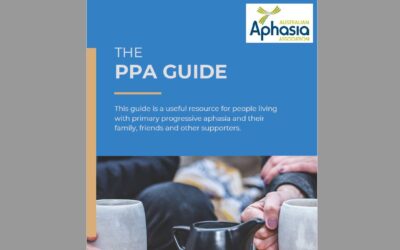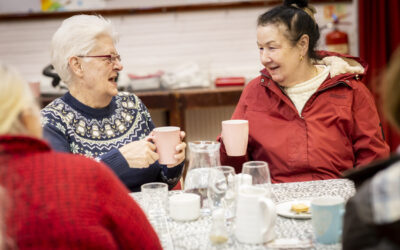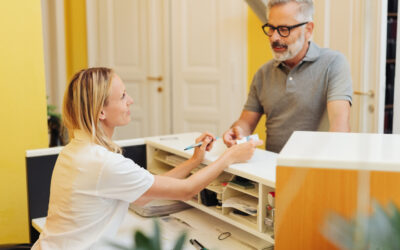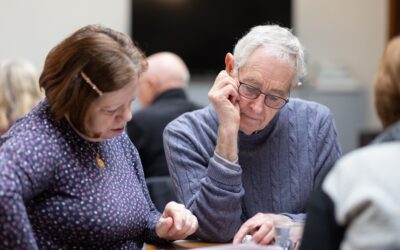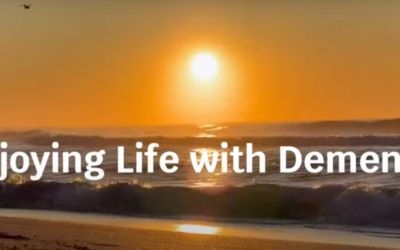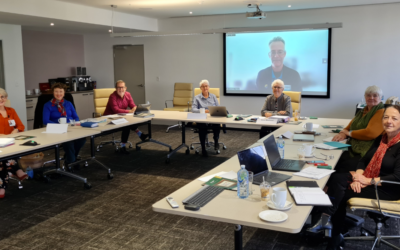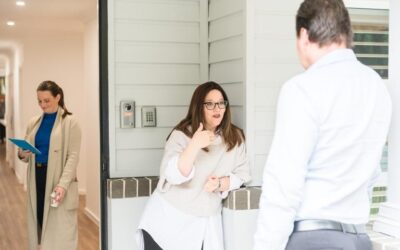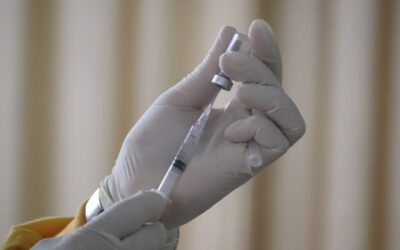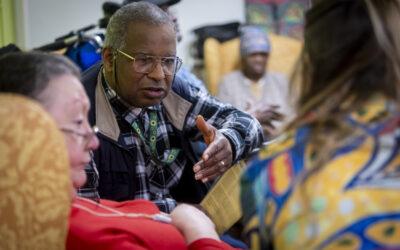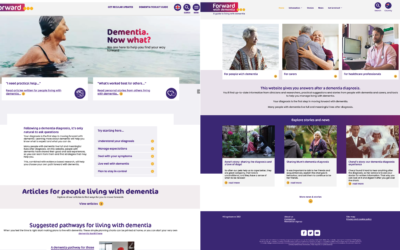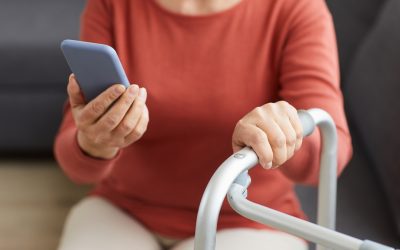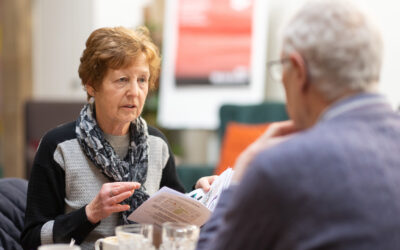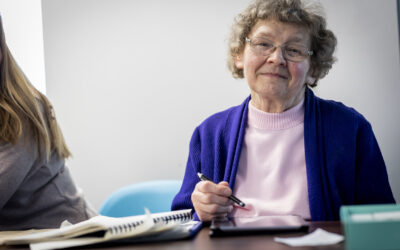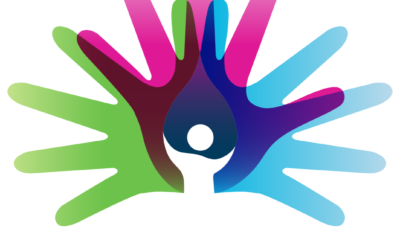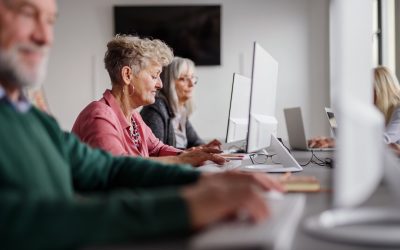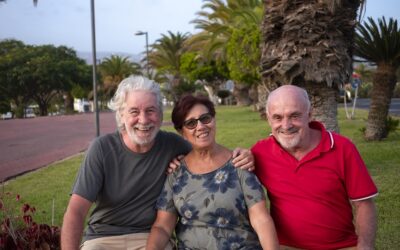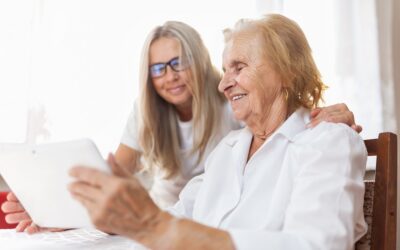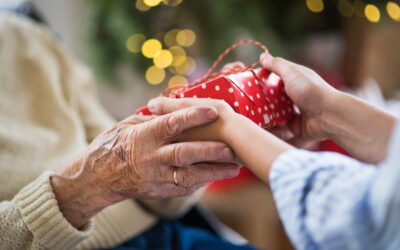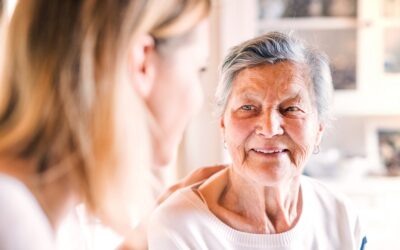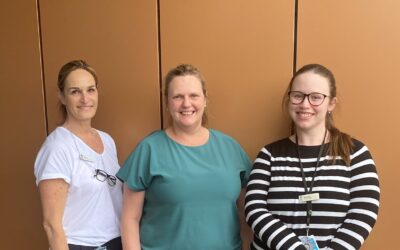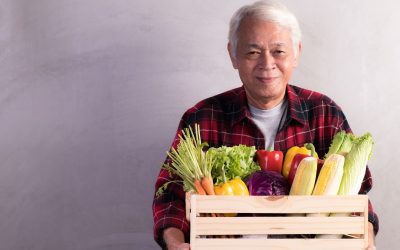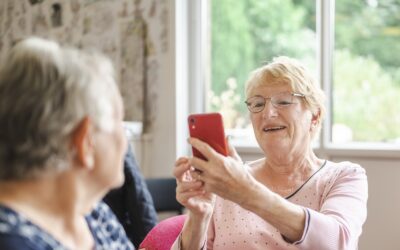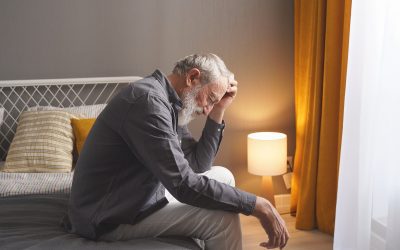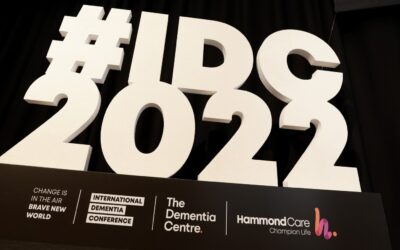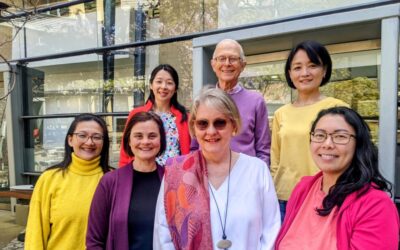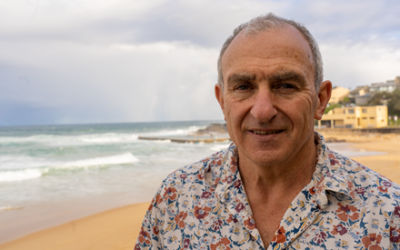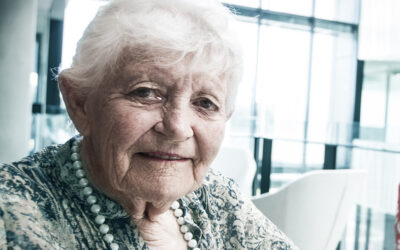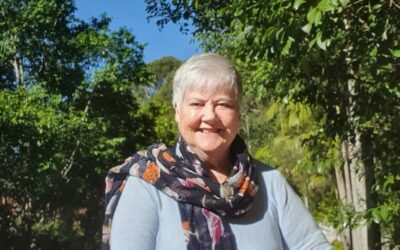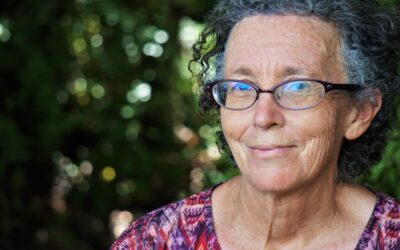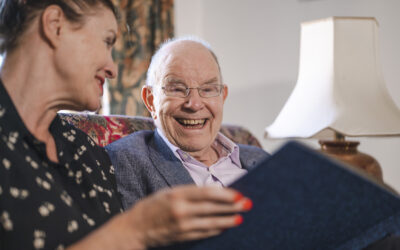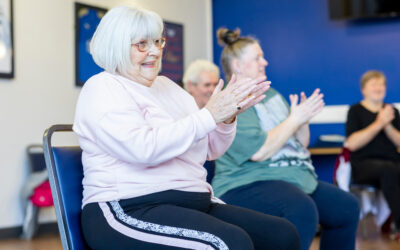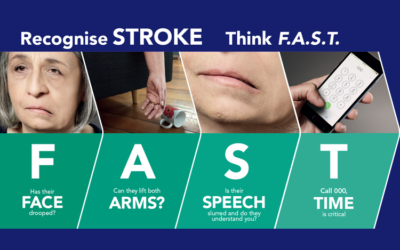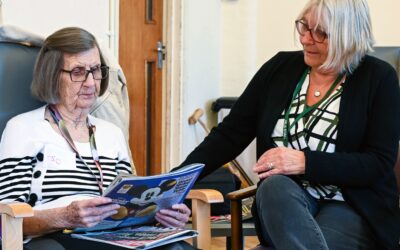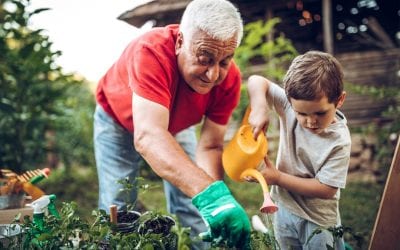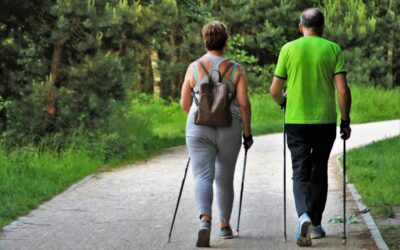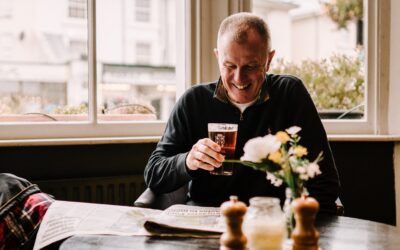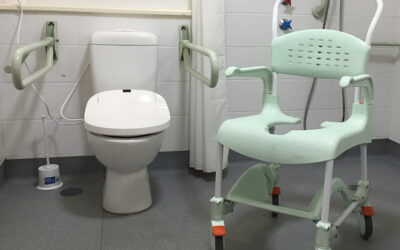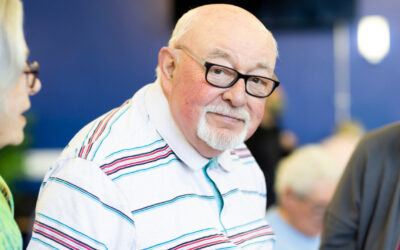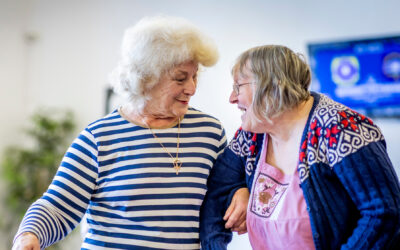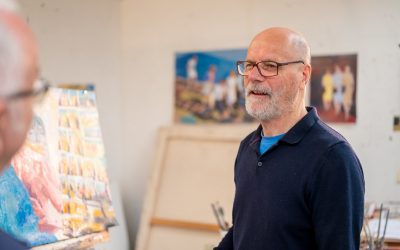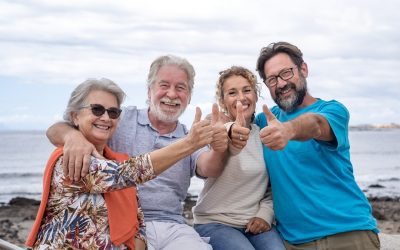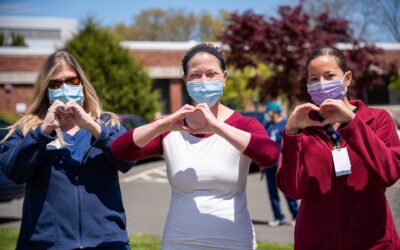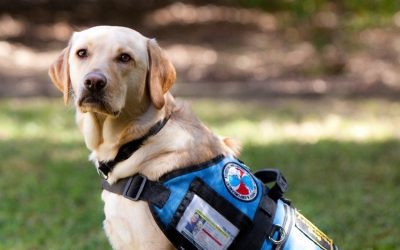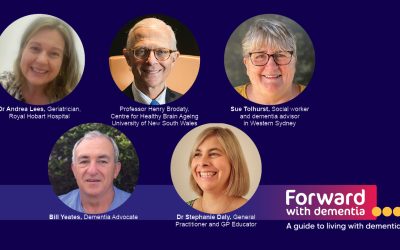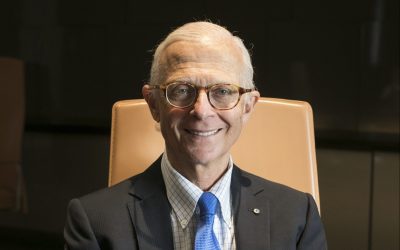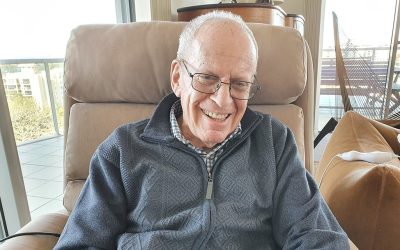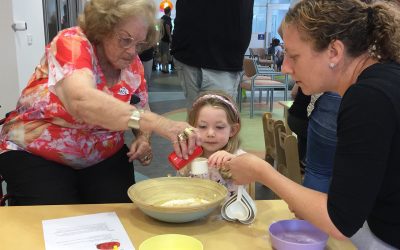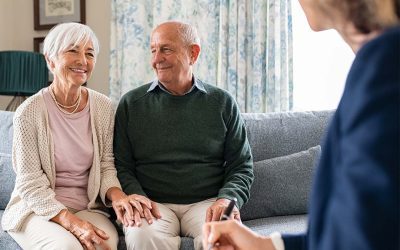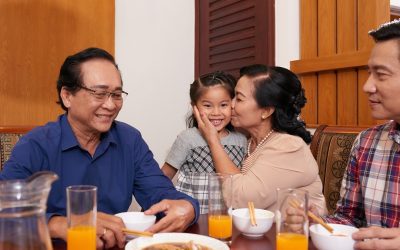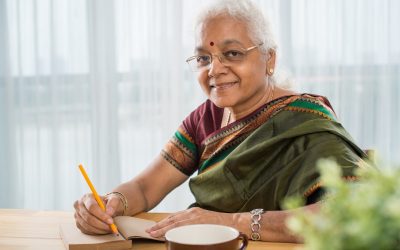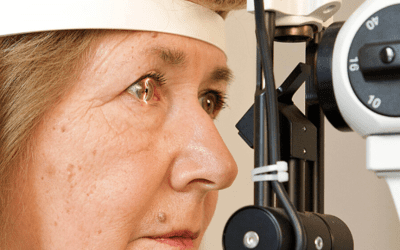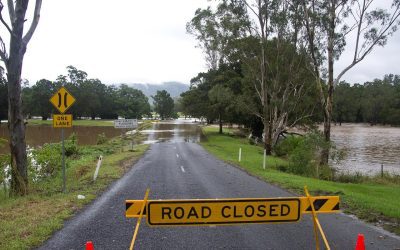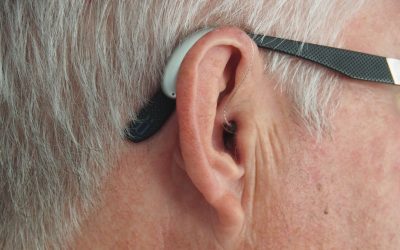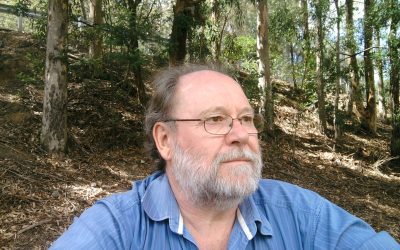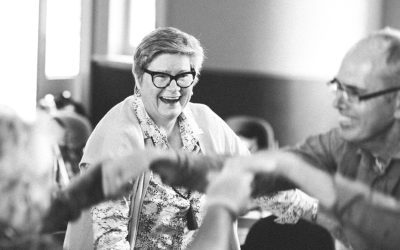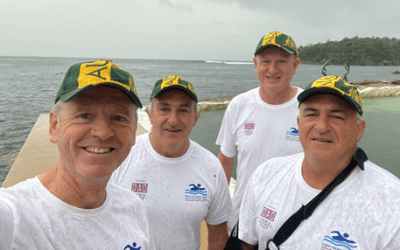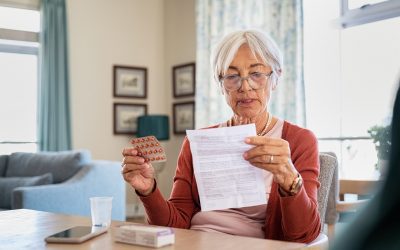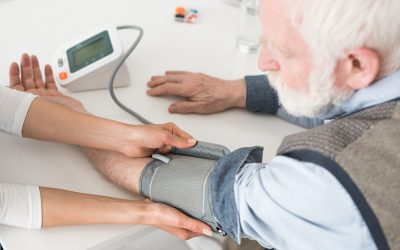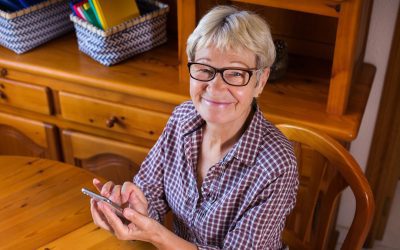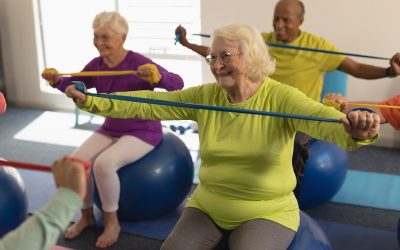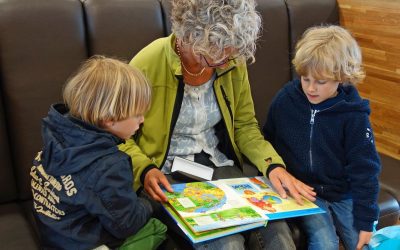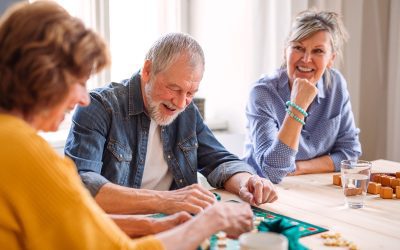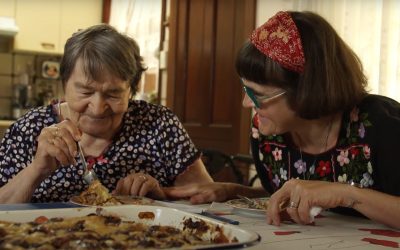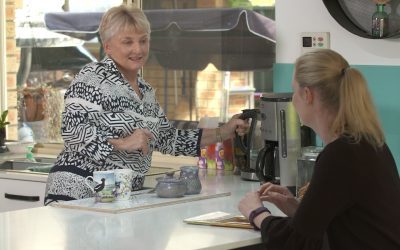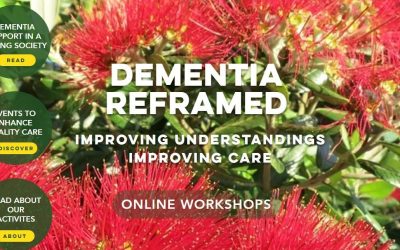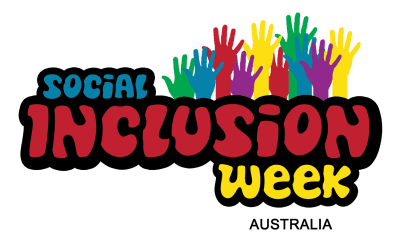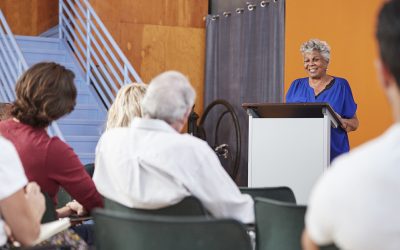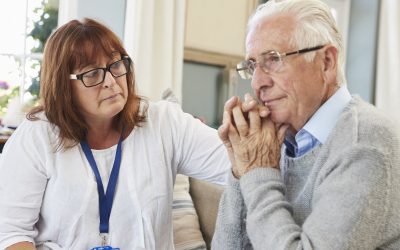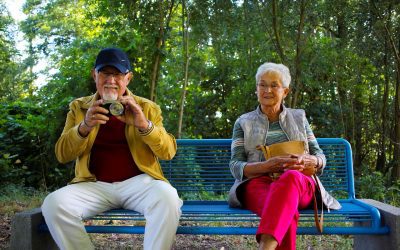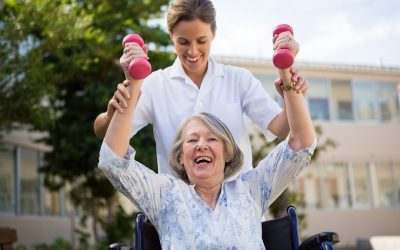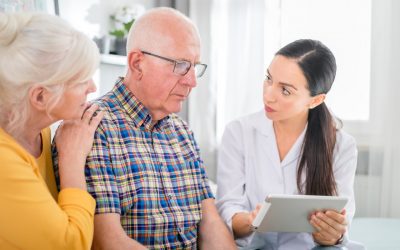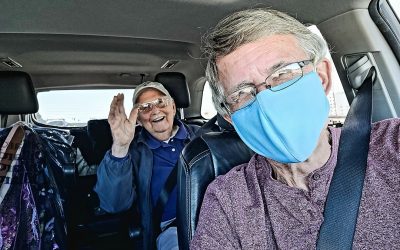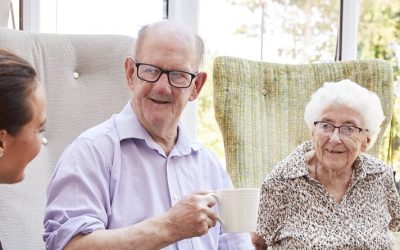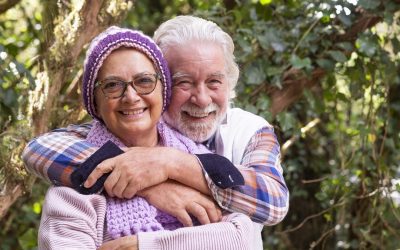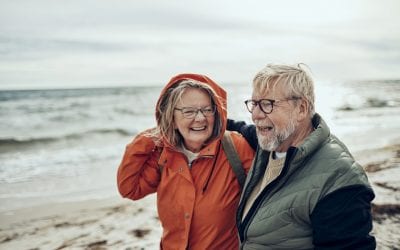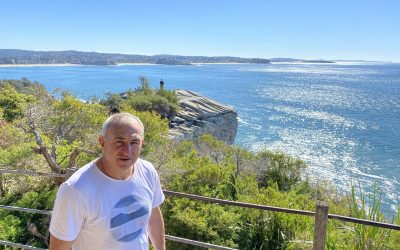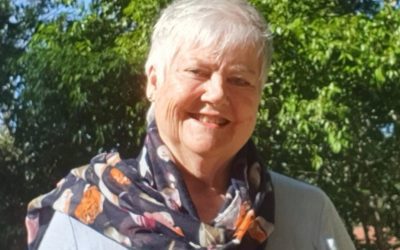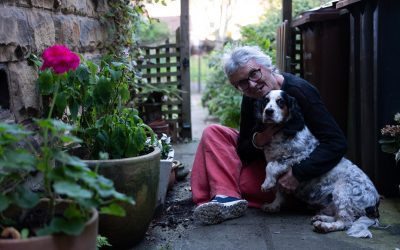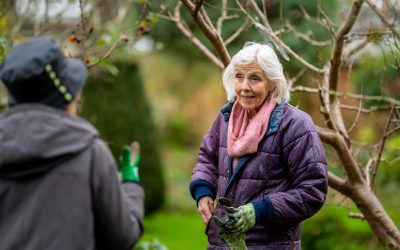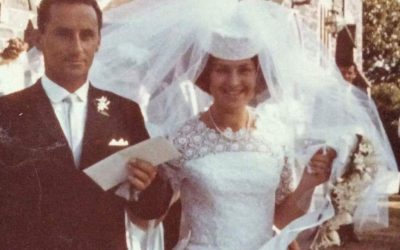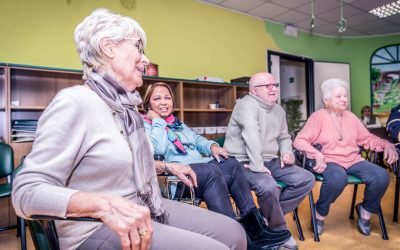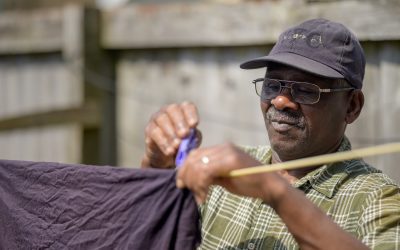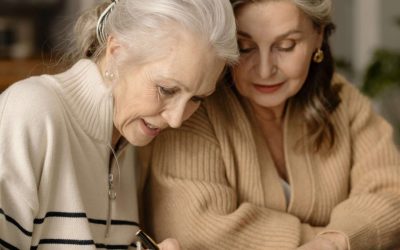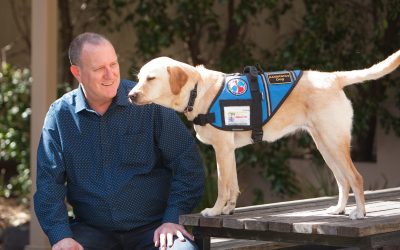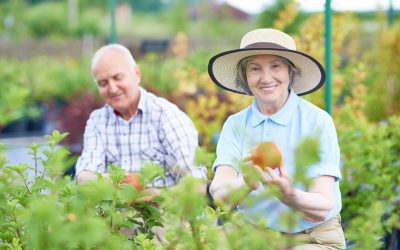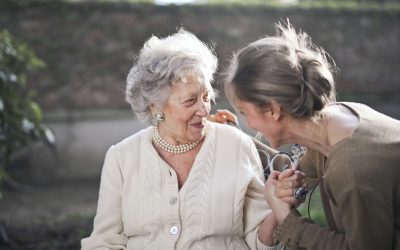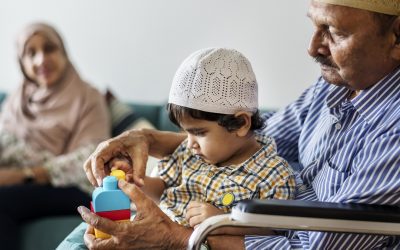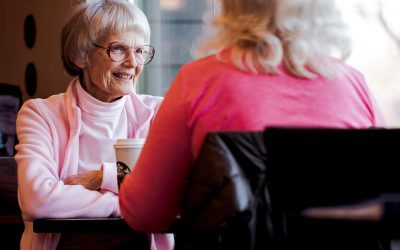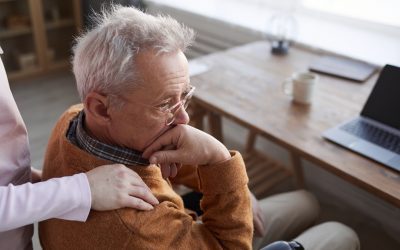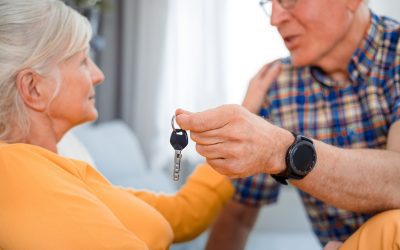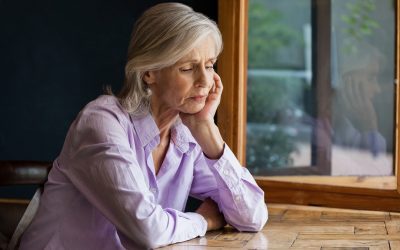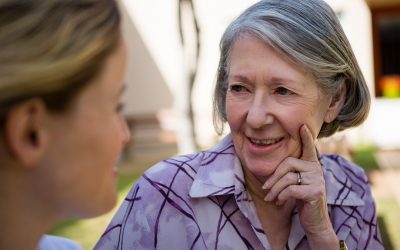Cognitive Stimulation Therapy (CST) is a short-term, evidence-based psycho-social intervention for people with mild to moderate dementia.
News & Stories
Latest news and stories from Forward With Dementia…
A healthy diet for hearts and minds
One of the best ways to look after your brain is to look after your heart, and a healthy diet is a great way to do that.
Dementia and environmental design
Evidence-based design principles to improve the built environment to assist in delivering safe, respectful and dignified support.
Introducing the PPA Guide
A new resource for people living with primary progressive aphasia (PPA) and their families
Face Dementia’s General Practice Improvement Program
General practices have a key role in identifying, diagnosing and providing post-diagnostic care for people with dementia
Results show improvement in communication of dementia diagnosis
Health professionals who engaged with the campaign improved the way in which they communicated dementia diagnosis and provided more post-diagnostic information and supports.
Supporting communication with people living with dementia
Maintaining meaningful conversations with family and friends is vital to living well with dementia.
Berry good news for brain health
Research has shown that eating berries benefits the brain and can promote healthy ageing.
MyMedicare to benefit older Australians
Seeing your GP regularly and formalising the relationship you have with your GP and practice through MyMedicare can help to better meet your health needs.
Launch of Face Dementia project
The researchers who brought you Forward with Dementia have launched a new program to encouraging people to learn the early signs of dementia and seek a timely diagnosis.
An ‘exercise snack’?
Exercise consistently crops up as a key intervention to keep our bodies and brains functioning well.
Vote for ‘Enjoying Life with Dementia,’ a film by Bill Yeates
You now have the chance to support Bill as the video ‘Enjoying life with dementia’ was entered in the Focus on Ability film festival!
Dementia Inclusive Ballina Alliance: Future Fit
Dementia Inclusive Ballina Alliance is preparing for two days of inspiration, knowledge and fun at a community event on September 23rd 20203 in Ballina, NSW
New five-day post-diagnostic retreat by Group Homes Australia
The program was co-designed by researchers and people living with dementia and their carers.
Donanemab – the third new Alzheimer’s Disease treatment under development
By Scientia Professor Henry Brodaty
International experiences of post-diagnostic support
Recently published research which helped to inform the Forward with Dementia project in five countries.
Influenza and dementia
New evidence suggests that vaccination against viral illnesses can protect against neurodegenerative diseases.
Improving the Forward with Dementia website
Exploring the usability, user experience and usefulness of a supportive website for people with dementia and carers
April Falls Prevention
Older people, and people living with dementia, are at greater risk of falls and injury from falling. Find out how you can reduce your risk.
Advance Care Planning week
You can develop an Advance Care plan or directive regardless of your age or health status.
Epilepsy and dementia
Dementia and epilepsy often occur together and it is important to be aware of the symptoms of seizures and how they can be diagnosed and managed.
Rare Diseases Day: Frontotemporal dementia
Frontotemporal dementia is a relatively rare disease, but it is one of the most common causes of dementia in people under the age of 65.
BeConnected webinars and staying safe online
Sign up for these free, Australian Government BeConnected webinars to develop your digital skills and keep safe online.
Getting organised at home
February is a great month to get organised and set up home routines for the year ahead to help you, and/or the person you care for.
LGBTIQ+ and dementia
Tailored supports and resources are essential for the LGBTIQ+ community as well as their care partners, family and friends.
Medication update: Lecanemab
By Scientia Professor Henry Brodaty
New research supports evaluation of dementia-friendly communities
Communities for Dementia uses an empowerment evaluation approach to build tools, skills and capacity to help communities better understand their impact.
Supported Decision Making for people living with dementia
As part of the United Nations Human Rights Day on 10th December, we’re sharing information about supported decision making for people living with dementia and their carers/supporters.
Tips for coping with the festive season
The holiday season can be a challenging time for people living with dementia and their carers. Here are some tips and ideas that might help.
Social inclusion for people living with dementia
Social Inclusion Week is an important time to consider the social connection needs of people living with dementia and their carers, and to ensure they have the opportunity to participate fully in society.
Sleep, wellbeing and dementia: New research
Sleep problems are common among people living with dementia and their care partners.
Moving forward with new research
Researchers in the Australian Forward with Dementia Team are actively involved in a range of new research projects to improve diagnosis and post-diagnostic support for dementia and mild cognitive impairment.
New post-diagnostic support program in the ACT – SPICE
Showcasing a new post-diagnostic support program, Sustainable Personalised Interventions for Cognition, Care, and Engagement (SPICE)
Nutrition and dementia
Try to maintain a healthy weight and talk to your doctor if you have concerns about your weight, diet or appetite.
Carers Week 2022
Forward with Dementia offers information, advice and downloadable resources to help carers and people living with dementia.
Dementia Alliance International Peer-to-Peer Support Groups
By DAI Co-founder, Kate Swaffer, MSc.
Older Adult Mental Health Week
1 – 10 October is Older Adult Mental Health Week, an important time to increase awareness about depression and anxiety which can occur with, or following, a dementia diagnosis.
The world of dementia is changing
Dr Meredith Gresham reports on the 2022 HammondCare International Dementia Conference held in Sydney from 8-9 September.
Meet the Australian Research Team
Pictured from left to right. Top row: Nora Wong, Henry Brodaty and Yun-Hee Jeon. Bottom row: Lee-Fay Low, Lyn Phillipson, Meredith Gresham and Amy Tan.
Becoming a dementia advocate – Bill Yeates
By sharing our experiences and our stories we help to reduce dementia-related stigma, and we help to inform and empower others.
Carer turned dementia advocate – Val Fell
Val continues to lead a local carers support group and is greatly valued for her empathy, willingness to help, and expert knowledge of the aged care system.
Becoming a dementia advocate – Bobby Redman
I encourage others living with dementia, or caring for someone with dementia to consider becoming an advocate and undertake Dementia Advocate Training through Dementia Australia.
Women’s Health Week
During Women’s Health Week, we encourage all women, and their families, to consider if they’re experiencing any of the signs and symptoms of dementia, and to seek a diagnosis and support.
Speech pathology after a dementia diagnosis
By Beth Causa, Speech Pathologist with a passion for rehabilitation, disability and aged care.
Support to stay at home following a dementia diagnosis
Showcasing post-diagnostic support programs currently running in Australia by Dementia Support Australia, Dementia Australia and the Uniting War Memorial Hospital
Stroke and dementia
Age makes us more susceptible to having a stroke, as does having a mother, father, or other close relative who has had a stroke.
Dental health
Good oral health is vital for all Australians, but as we age, deteriorating health, cognition and mobility can make dental hygiene more challenging.
Libraries and people with dementia
Libraries provide a wealth of resources for all ages and can be particularly useful and engaging for older people including people living with dementia.
Gardening and people living with dementia
With the worst of winter (hopefully) behind us, it’s time to think about gardening and all the benefits gardens and horticulture therapy can bring for people living with dementia.
Diabetes and dementia
10 – 16 July is National Diabetes Week 2022. Over 1 million Australians have Type 2 diabetes, and up to 1 in 5 people with the disease are yet to be diagnosed.
Alcohol and dementia
Drinking a lot of alcohol increases your risk of getting dementia and heavy drinking may speed up deterioration in people living with dementia.
Stay in control of your continence
The good news is that much can be done to prevent or manage incontinence including incontinence in dementia.
Dementia awareness in Men’s Health Week
Men’s Health Week, from 13 – 19 June 2022, provides an important opportunity to reflect on the different health needs of men.
Music and dementia
Music has a powerful and unique role in dementia care, enhancing quality of life for people living with dementia and their carers.
Art and people living with dementia
Research studies have shown that creative art activities can help boost cognitive function, as well as enhance communication and social connections for people living with dementia.
Exercise right to boost your brain health
It’s Exercise Right Week (23 – 29 May) and a reminder to keep physically active to improve or maintain memory, thinking, and the daily function of people with dementia.
The importance of families in dementia diagnosis and support
Families are important in most aspects of life, but especially so in noticing early signs and symptoms of dementia and providing support following a dementia diagnosis.
Dementia and driving
It’s National Road Safety week, and we’re sharing information about dementia and driving, including making decisions about driving, and transitioning to not driving.
Celebrating nurses in dementia care
By Prof Yun-Hee Jeon, Registered Nurse and Professor of Healthy Ageing
Phil’s story: support of a highly trained assistance dog
Pets as therapy and assistance animals for people living with dementia.
Top tips from our expert panel
Top tips and key quotes from the expert panel on navigating the system and finding supports after a dementia diagnosis
Aducanumab (Aduhelm)
Medication update by Prof Henry Brodaty
Parkinson’s disease and related dementias
Read George’s story about his symptoms and diagnosis of Parkinson’s dementia, and how he’s managed to move forward despite a major set-back and time in hospital
Intergenerational playgroups: Benefits for people with dementia
21 – 27 March is Playgroup Week and we’re showcasing intergenerational playgroups and the benefits they can bring for people living with dementia
It’s time to plan for the future
The future belongs to those who prepare for it today!
Services for people with dementia from CALD communities
Harmony Day provides an opportunity to promote dementia specific resources and services for people from culturally and linguistically diverse communities
Dementia resource and services for Indigenous Australians
It’s vital to increase awareness among Aboriginal and Torres Strait Islander people, and the health professionals who work with them, about dementia resources and support services currently available.
Time to plan for now!
For many people, after receiving a dementia diagnosis, it’s hard to know what do next.
New research to help people access dementia-friendly eye tests
Researchers at the University of Melbourne and the Australian College of Optometry, Victoria, are conducting research to improve the experience for people living with dementia when having eye tests
Webinar: Navigating the system, finding supports after diagnosis
This live webinar was held on Wednesday 16 March 2022 with Prof Henry Brodaty, Bill Yeates, Dr Stephanie Daly, Dr Andrea Lees, and Sue Tolhurst
Natural disasters and people living with dementia
by Dr Meredith Gresham, Centre for Healthy Brain Ageing (CHeBA)
Hearing Awareness Week: Time to get your hearing checked!
Uncorrected hearing loss increases your risk of dementia and makes life harder for those already living with dementia.
Rare Disease Day: Frontotemporal Dementia
Dennis Frost felt relieved when he finally received his diagnosis of frontotemporal dementia.
Showcasing the Museum of Love and the Celebrate Ageing Program
This Valentine’s Day remember to maintain those loving relationships and celebrate your personal connections.
How your GP and practice nurse can help
With thanks to Illawarra GPs, Dr Russell Pearson and Dr Jeff Hall
Keeping active and social while raising funds and awareness
By Bill Yeates, Dementia Advocate
Medication Review: Watch out for Anticholinergics
by Dr Grace Wong, Bachelor of Medical Studies (Dist.) / Doctor of Medicine (Dist.)
Reducing the risk of vascular dementia
Vascular dementia is the second most common form of dementia after Alzheimer’s disease.
Options to help keep you socially and mentally active online
Being socially and mentally active can help boost your brain health.
Options for keeping physically active at home
We know physical activity can help to improve or maintain memory, thinking, and the daily function of people with dementia.
New habits for the new year
It’s time to set a new goal, make a life plan and move forward with dementia.
A tribute to Dr Hasegawa
by Prof Henry Brodaty
Children’s Books about Dementia
A selection of books that increase children’s awareness and understanding of dementia.
Time Travelling with Technology
By Madeleine Radnan, Ruth Brookman, and Celia Harris from the MARCS Institute for Brain, Behaviour, & Development, Western Sydney University
Surviving the festive season
Tips and ideas for maintaining your physical and emotional health during the festive season.
I-HARP: Improving dementia outcomes through at-home care
By Professor Yun-hee Jeon, Professor of Healthy Ageing. 30.11.21
Showcasing the COPE program
COPE focuses on what the person with dementia can do, not on what they can’t.
Dementia Reframed
Dementia Reframed is about exploring different ways of thinking about dementia, beyond the medical focus on cause and treatment, and beyond the messages of doom and gloom.
Social inclusion for people living with dementia
20 – 28 November is Social Inclusion Week, and this year the theme is connect, collaborate and celebrate.
Get involved and help us improve Forward with Dementia
You are invited to provide feedback on our website and other activities to help us improve the Forward with Dementia program.
One step ahead: the iReadi program
Showcasing the iReadi program: Integrated Rehabilitation for Early Stage Dementia
Emotional reactions to having dementia
People with dementia often feel shocked and numb when first receiving their diagnosis
Tam’s story: support and education in the Vietnamese community.
I care for my parents-in-law who live with us. This is a very important duty as my husband’s...
Busting myths to combat stigma
The Forward with Dementia program challenges negative stereotypes and guides people recently diagnosed to live positively with dementia.
Travel for people living with dementia
Guest post by Dr Maria O’Reilly, CQUniversity 1.11.21
Webinar: Rethinking support after dementia diagnosis
Unmet needs and evidence for rehabilitation
with Prof Lee-Fay Low and A/Prof Lyn Phillipson
Improving the dementia diagnosis experience
Targeting healthcare professionals to improve the dementia diagnosis experience for people living with dementia and their carers.
Getting back into life and routine after COVID lockdown
By Professor Lee-Fay Low 19.10.21
Webinar: Rethinking the dementia diagnosis conversation
Health practitioners can improve communication of the dementia diagnosis and help set people with dementia on the right path forward.
Celebrating carers
It’s National Carers Week and we’re celebrating carers of people living with dementia. In particular, the wonderful carers who shared their experiences, strategies and advice to help build the Forward with Dementia program.
Launch of Forward with Dementia Australia
An innovative new program launched today aims to assist the estimated 60,000 Australians diagnosed with dementia each year to understand the next steps and change outdated perceptions of living with dementia.
Hello! Socially reconnecting after diagnosis
Bill describes how the simple act of saying ‘hello’ helped his confidence to socially reconnect after a diagnosis of young onset dementia.
Bobby’s story: adjusting, accepting, and succeeding
Everything I found challenging I looked at and found a way to work around it
Aducanumab: Is the new drug for Alzheimer’s disease a cure?
By Prof. Henry Brodaty. 21.08.21
Anne’s story: sharing the diagnosis and a love of dogs!
So often our pets help us to cope better, they are great company, their love is unconditional, and they have a sense of when to be relaxed!
Sharing Mum’s dementia diagnosis
It was important to talk to her friends and acquaintances, explain the changes in behaviour, and ask them to continue to be her friends.
Cheryl’s story: our dementia diagnosis experience
Cheryl found it hard to hear anything after the diagnosis, so her advice is to ask your doctor for written information. That way you can look at it and digest it after you get over the shock.
Cheryl’s story: services and support experience
There is help out there, but you have to ask.
Michael’s story: a positive approach to living alone with dementia
Living alone doesn’t equate to being lonely! Michael is optimistic and hopes his ideas and experiences will help others.
Kerrie’s story: becoming the organiser to help with Maeve’s dementia
The dementia diagnosis was a shock to them both. Maeve and Kerrie talked at length about their future and the best way forward.
Phil’s story: from dismal diagnosis to dementia advocate
Phil’s optimistic manner and persistent effort to remain independent have helped him lead a busy, positive life.
Phil Hazel’s story: decision about driving
It was a tough decision, but Phil felt he couldn’t put other people at risk by continuing to drive.
Rosa and Arnaldo’s story: travelling after a dementia diagnosis
Rosa was pleased that despite Arnaldo’s dementia diagnosis, they were still able to go on their trip.
The joys and challenges of caring across the sea
Although it was not easy, I’m grateful I had that time with my Mum when she probably needed me most.
Emira’s story: support from family and the Turkish community
The last few years have been difficult, but every day I give thanks for my children and their help
Betty’s story: help to stay independent at home
Betty reclaimed control over her future with family understanding and support services.
Jean’s story: managing emotions after a dementia diagnosis
I remember feeling like our lives had ended.
Colin’s story: education, social support and self-care for carers
It’s important to keep going with your own personal interests and skills. It helps you to stay confident.
Brian’s story: diagnosis and giving up driving
I can’t say it was easy to stop driving, but it was my decision.
Carol’s story: when caring for the carer is important
No one thought to consider how Carol was feeling or about how her life would be changed by the diagnosis.
Heather’s story: moving forward without confrontation
Tips from an experienced carer on reducing anxiety and confrontation.



